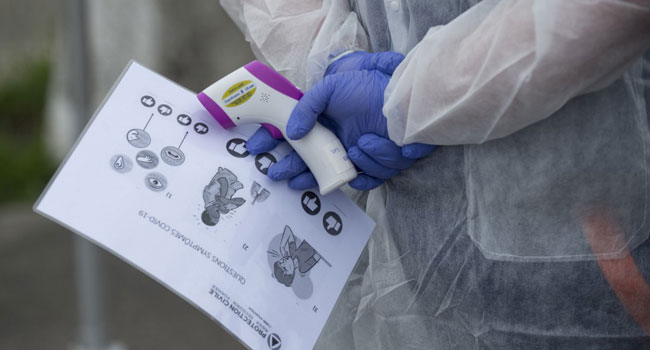French authorities have placed seven more departments covering major cities such as Lille, Strasbourg and Dijon on high alert as increases in COVID-19 infections accelerate, the government said Sunday.
Of France’s 101 mainland and overseas departments, 28 are now considered “red zones” where authorities will be able to impose exceptional measures to slow the number of new coronavirus cases.
The move comes as France reported a record of nearly 9,000 daily cases on Friday, and a further 8,550 cases in the past 24 hours on Saturday, when the nationwide test positivity rate increased to 4.7 percent.
Paris and the Bouches-du-Rhone department encompassing the southeastern city of Lyon were the first to be placed on high alert by the government on August 14 after infection rates began to climb.
Read Also: Thieves Seize 9 Million Euros In France Cash Heist
That prompted local officials to require face masks in all public spaces to slow the virus’s spread, in hope of avoiding a spike in cases that could again overwhelm hospitals as autumn approaches.
The Sante Publique France health agency, which has warned of “exponential” caseload increases, said Saturday that 53 new outbreak clusters had been discovered in the previous 24 hours, bringing the total number under investigation to 484.
Twelve more Covid-19 deaths were reported, for an overall toll of 30,698 since the pandemic flared last March.
Concerns over infection risks have already prompted officials to close 22 schools after cases were detected just days after students returned from the summer break last week, and dozens of individual classes have also been suspended.
On Sunday, the government said pre-school teachers as well as those with deaf students would soon be given transparent masks to facilitate comprehension at a crucial education stage for young children.
“More than 100,000 of these masks will be produced by the end of this month,” the state secretary in charge of people with disabilities, Sophie Cluzel, told the Journal du Dimanche newspaper.
AFP
